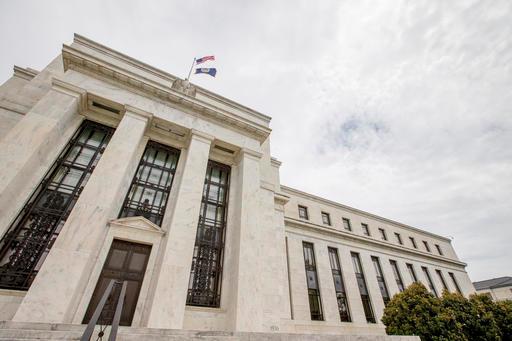Federal Reserve meeting on interest rates: Here's what to expect
All of Wall Street’s eyes are on the Federal Reserve this week.
Policymakers at the central bank will conclude a two-day meeting on Wednesday, during which they’re widely expected to raise the benchmark federal funds rate for the fourth time this year, despite outside pressure from President Trump to do otherwise. About 80 percent of Wall Street traders expect to see a raise – and it likely won’t be the last, heading into next year, according to Steve Rick, the chief economist at CUNA Mutual Group.
“The Fed continues to see the economy is overheating, as we’re operating above normal levels right now – so we’ll continue to see rate hikes in 2019 because the economy is overheating at this point,” Rick said.
Higher rates can impact consumers by increasing borrowing costs, which have already climbed this year. Auto loan rates are at a nine-year high, and 30-year-fixed mortgage rates climbed to their highest level in seven years.
Although still low by historical standards, another hike would put interest rates at the highest level in nearly a decade. In November, Fed Chair Jerome Powell struck an optimistic note about the state of the U.S. economy, suggesting that interest rates are nearing neutral.
“Interest rates are still low by historical standards, and they remain just below the broad range of estimates of the level that would be neutral for the economy -- that is, neither speeding up nor slowing down growth,” Powell said while speaking at the Economic Club of New York. "My own assessment is that, while risks are above normal in some areas and below normal in others, overall financial stability vulnerabilities are at a moderate level."
But Rick said with such a historically low unemployment rate -- at 3.7 percent, it’s the lowest in nearly five decades -- the economy likely needs to slow to return to normal. The Fed considers 4.6 percent to be the natural rate of unemployment.
“We’re not at a sustainable output for the economy, so it will have to slow somewhat,” Rick said, adding, “Right now there is so much momentum behind the economy that there is very little chance of a recession coming before 2020 – barring a black swan event that can’t be predicted or forecast.”
Even with another interest rate hike, the housing market may do better than expected going into 2019, he said. Interest rates that factor into mortgage rates have fallen over the past month, meaning that mortgage rates have also declined.
“So while I thought interest rates would keep rising and that would lessen demand for homes, we’re actually seeing interest rates falling again and increasing the affordability of homes once more,” he said.
Trump has repeatedly lambasted Powell and the Fed for what he says is raising interest rates too frequently. Although interest rates can stave off inflation and prevent the economy from overheating, they can also slow it.
"So far, I’m not even a little bit happy with my selection of Jay," Trump said in November during an interview with The Washington Post. ”Not even a little bit. And I’m not blaming anybody, but I’m just telling you I think that the Fed is way off-base with what they’re doing.”




















